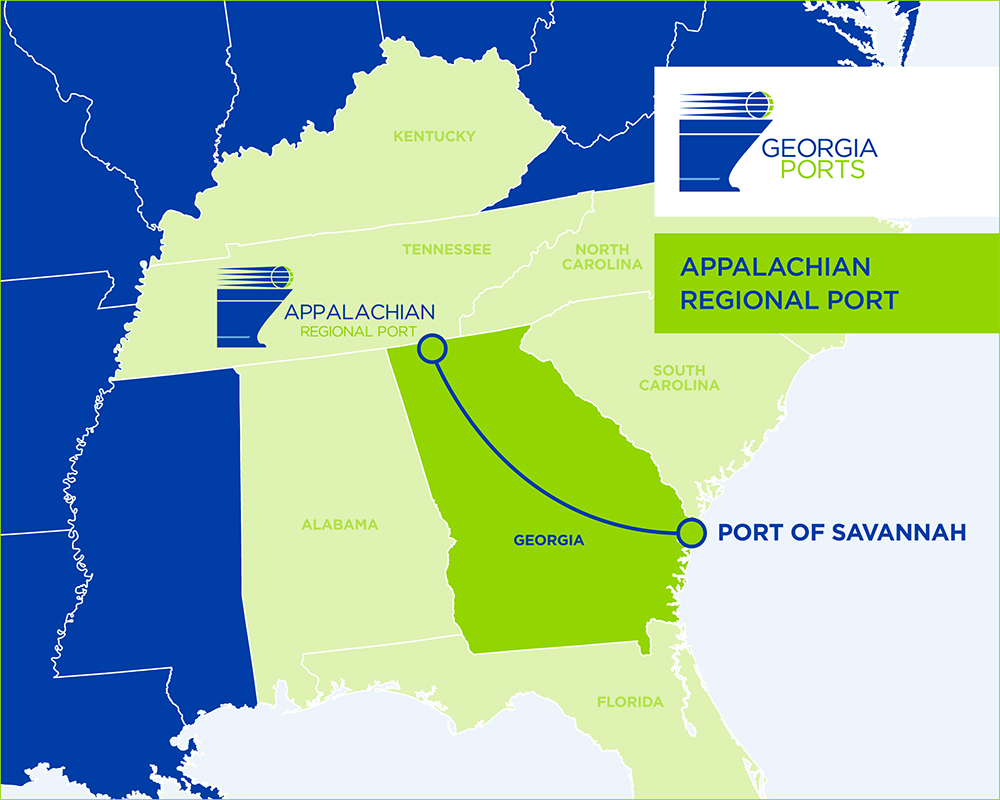Savannah, GA — This week the Georgia Ports Authority (GPA) held its annual State of the Port – and there certainly is a lot of good news to talk about.
The port of Savannah experienced its second busiest month ever in July, with tonnage across all Georgia ports increasing by 10.5 percent. On August 22, Gov. Nathan Deal and other officials hailed Savannah’s latest connection, a 380-mile rail link to the brand-new Appalachian Regional Port in Murray County north of Atlanta.
These developments – which will spur growth and jobs across Georgia – are examples of the fruits of good infrastructure. And they demonstrate the economic power of ready access to the Southeast’s most extensive rail network. After years of record increases in the state’s imports and exports, investing in the infrastructure necessary to support this growing demand has never been more important.
In March, the Port of Savannah started construction on a $127 million rail terminal to accommodate longer trains that can take advantage of bigger cargo ships.
“It is no accident the GPA is constructing rail capacity as the demand for rail is growing… As Part of our strategic planning two years ago, our team identified the growing role intermodal cargo would play in GPA’s long-term success and put into place this plan for expansion,” said GPA Board Chairman Jimmy Allgood to the Savannah Morning News.
The mega-rail project – which will allow the port to load trains that are 10,000 feet long – will link Savannah to markets in Memphis, St. Louis, Chicago and the Ohio Valley, underlining Georgia’s significance to the national economy. Longer, more efficient trains will also reduce the need for trucks to haul cargo, taking about 200,000 tractor-trailers off of Georgia highways each year.

The success of Georgia’s rail system — which is vital for the state’s economy — is largely due to private investments from the state’s rail companies. The billions of private dollars spent each year by railroads sustains and enhances the network that Georgia businesses and consumers rely on. For example, the new Appalachian Regional Port, with its direct rail link to Savannah, “opens up a new door” and is already drawing interest from the industrial base nearby, according to the Georgia Ports Authority.
Georgia’s logistics industry makes up 18 percent of the gross state product, and freight rail comprises a significant portion of that. Railroads employ more than 7,000 workers to serve the more than 30,000 companies that rely on the logistics industry to move goods through supply chains. Georgia’s Class I railroads, which interchange with nearly 30 short line railroads operating in our state, offer three-day service to major cities like Chicago, Cincinnati and Dallas, allowing Georgia companies to reach nearly 80 percent of the U.S. market in that time.
Rail’s continued investment in infrastructure is crucial to Georgia’s growth in the 21st century economy.

